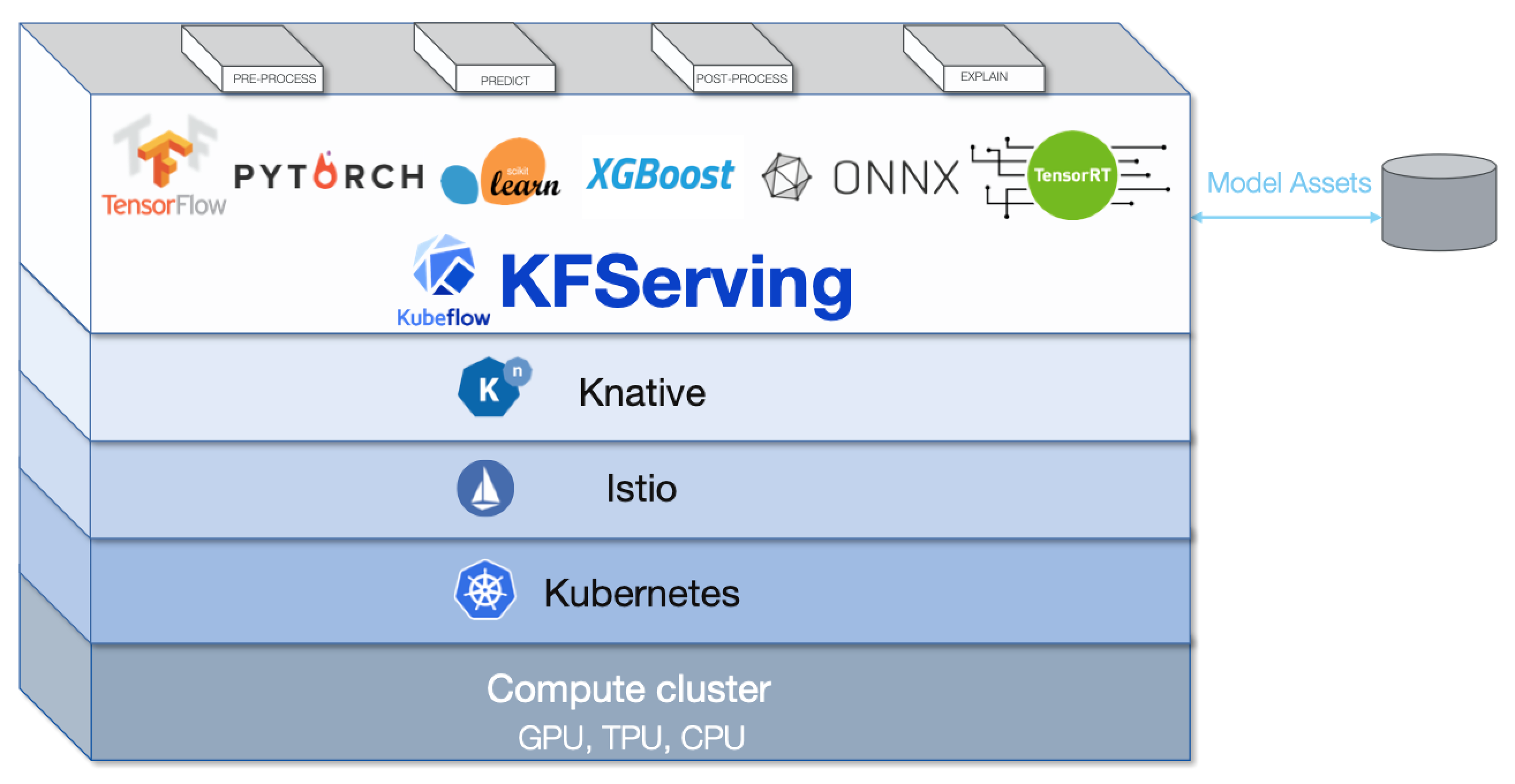KFServing
Beta
This Kubeflow component has beta status. See the Kubeflow versioning policies. The Kubeflow team is interested in your feedback about the usability of the feature.KFServing enables serverless inferencing on Kubernetes and provides performant, high abstraction interfaces for common machine learning (ML) frameworks like TensorFlow, XGBoost, scikit-learn, PyTorch, and ONNX to solve production model serving use cases.
You can use KFServing to do the following:
-
Provide a Kubernetes Custom Resource Definition for serving ML models on arbitrary frameworks.
-
Encapsulate the complexity of autoscaling, networking, health checking, and server configuration to bring cutting edge serving features like GPU autoscaling, scale to zero, and canary rollouts to your ML deployments.
-
Enable a simple, pluggable, and complete story for your production ML inference server by providing prediction, pre-processing, post-processing and explainability out of the box.
Our strong community contributions help KFServing to grow. We have a Technical Steering Committee driven by Google, IBM, Microsoft, Seldon, and Bloomberg. Browse the KFServing GitHub repo to give us feedback!
Install with Kubeflow
KFServing works with Kubeflow 1.1. Kustomize installation files are located in the manifests repo. See examples running KFServing on Istio/Dex. For installation on major cloud providers with Kubeflow, please follow their installation docs.
Kubeflow 1.1 includes KFServing v0.3, where the focus has been on providing more stability by doing a major move to KNative v1 APIs. Additionally, we added GPU support for PyTorch model servers, and pickled model format support for SKLearn. There were other enhancements to routing, payload logging, including bug fixes etc., details of which can be found here.

Examples
Deploy models with out-of-the-box model servers
Deploy models with custom model servers
Deploy models on GPU
Autoscaling and Rollouts
Model explainability and outlier detection
Integrations
Model Storages
Sample notebooks
We frequently add examples to our GitHub repo.
Learn more
- Join our working group for meeting invitations and discussion.
- Read the docs.
- API docs.
- Debugging guide.
- Roadmap.
- KFServing 101 slides.
- Kubecon Introducing KFServing.
- Kubecon Advanced KFServing.
- Nvidia GTC Accelerate and Autoscale Deep Learning Inference on GPUs.
Standalone KFServing
Install Knative/Istio
Knative Serving (v0.11.2 +), Istio (v1.1.7+), and Cert Manager(v0.12.0+) should be available on your Kubernetes cluster. For installing KFServing prerequisites, refer to the README section.
KFServing installation
Once you meet the above prerequisites KFServing can be installed standalone. Check the KFServing install directory for other available releases.
Monitoring
- Install Metrics, Logging and Tracing
- Accessing metrics
- Accessing logs
- Accessing traces
- Debugging performance issue
Use SDK
- Install the SDK.
pip install kfserving - Follow the example to use the KFServing SDK to create, patch, roll out, and delete a KFServing instance.
Contribute
Feedback
Was this page helpful?
Glad to hear it! Please tell us how we can improve.
Sorry to hear that. Please tell us how we can improve.